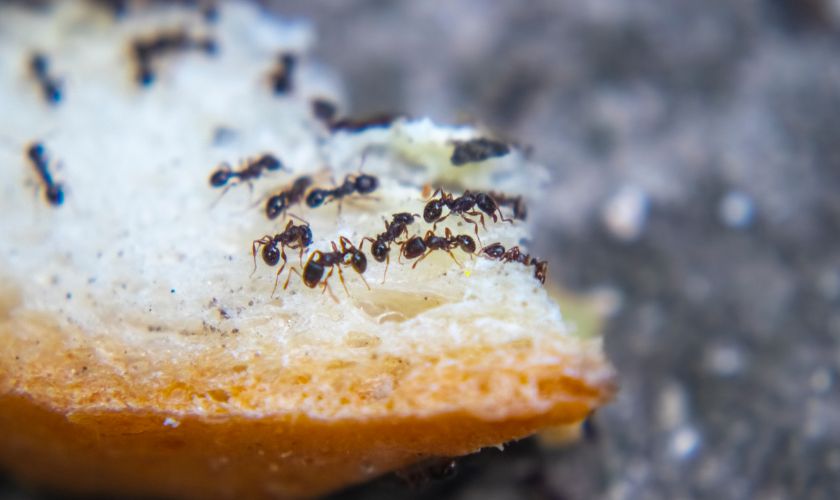Inexpensive Ant Control Solutions: Maintain Your Area Ant-Free
Inexpensive Ant Control Solutions: Maintain Your Area Ant-Free
Blog Article
Ecological Effect of Parasite Control: Balancing Performance With Sustainability
The ecological influence of parasite control is an important concern that calls for a fragile equilibrium in between achieving efficiency in taking care of parasites and making sure sustainability of our ecosystems. As we strive to safeguard our plants, homes, and wellness from the hazards posed by pests, the methods we utilize can accidentally hurt the atmosphere. From the usage of unsafe chemicals that seep into our soil and water to the unexpected effects on non-target species, the repercussions of traditional bug control practices are far-ranging. Nevertheless, there are arising methods that use wish for a more lasting approach to pest administration. These solutions not only goal to resolve the immediate insect troubles yet additionally consider the long-lasting health and wellness of our world.
Damaging Chemicals in Bug Control
The use of dangerous chemicals in bug control presents considerable environmental and health and wellness dangers that require careful factor to consider and reduction methods. Pesticides, pesticides, and herbicides are commonly used to get rid of parasites, however their prevalent application can bring about unplanned repercussions. These chemicals can pollute dirt, water resources, and the air, affecting not just the targeted pests but additionally valuable pests, wild animals, and human beings.

To attend to these risks, incorporated bug management (IPM) techniques are being advertised as a more lasting choice. IPM involves a mix of approaches such as organic control, environment control, and the targeted use chemicals as a last resource (ant control salisbury nc). By taking on a holistic approach to pest control, we can reduce the environmental and wellness influences connected with damaging chemicals while efficiently handling pest populations
Impact on Non-Target Variety
Taking into consideration the unexpected effects of insect control techniques, the influence on non-target species is a vital facet that needs detailed evaluation. While insect control actions aim to target specific parasites, various other microorganisms in the ecological community might be accidentally influenced. Non-target species, consisting of useful pests, birds, mammals, and also plants, can endure straight or indirect damage from chemical applications or organic control approaches.
Pesticides created to combat a specific bug parasite may harm pollinators like or all-natural predators such as ladybugs. Biological control agents, if not species-specific, can present threats to unintentional targets, interfering with the eco-friendly equilibrium.
To minimize the effect on non-target species, integrated bug monitoring (IPM) techniques that stress an alternative approach to pest control are recommended. These techniques prioritize making use of environmentally pleasant techniques, reducing injury to valuable microorganisms while efficiently handling pest populaces. Conducting comprehensive threat assessments and keeping an eye on the results of pest control efforts are essential actions in guarding non-target varieties and advertising total environment health.
Soil and Water Contamination
Unplanned ecological repercussions of ant control mocksville nc bug control techniques extend beyond influencing non-target species, with substantial effects for dirt and water contamination - ant control services. Pesticides, herbicides, and chemical fertilizers made use of in parasite control can seep right into the dirt and pollute groundwater, positioning a hazard to both earthbound and aquatic ecological communities.
Water contamination is one more important problem connected with parasite control techniques. To mitigate soil and water contamination from pest control activities, incorporated bug management approaches that focus on sustainability and decrease chemical inputs are crucial.
Air Air Pollution From Chemical Use
Exposure to air-borne chemicals throughout farming applications positions a substantial issue for air pollution control procedures. Furthermore, chemical drift, where pesticides are lugged by the wind to unplanned areas, can lead to the contamination of nearby communities and water bodies.

Strategies for Lasting Bug Control
In the realm of farming techniques, applying sustainable insect control methods is paramount for preserving eco-friendly equilibrium and securing crop returns. Lasting insect control stresses using eco-friendly methods to take care of parasite populations efficiently while reducing harm to non-target organisms and ecosystems. Integrated Parasite Administration (IPM) is a commonly embraced technique that combines biological, social, physical, and chemical control techniques to accomplish long-lasting pest monitoring remedies.
Crop turning and diversification are additionally efficient methods to interrupt pest life cycles and develop less favorable problems for pests to flourish. Ultimately, by incorporating these sustainable bug control methods, farmers can attain a balance in between pest administration effectiveness and environmental stewardship.
Final Thought
To conclude, the ecological effect of bug control approaches should be very carefully considered to stabilize effectiveness with sustainability. Damaging chemicals made use of in pest control can bring about soil and water contamination, air pollution, and harm non-target species - termite control. It is vital to implement sustainable bug control methods to reduce these negative impacts on the setting and advertise a much healthier ecosystem for future generations
By adopting a holistic strategy to pest control, we can lessen the ecological and health and wellness effects linked with damaging chemicals while efficiently managing pest populaces.

To minimize the air contamination created by chemical use, it is necessary to embrace incorporated bug management techniques that focus on the use of non-chemical pest control approaches, such as crop rotation, all-natural predators, and resistant crop ranges. Sustainable bug control highlights the usage of eco pleasant methods to handle insect populaces properly while lessening damage to non-target organisms and ecosystems. Integrated Pest Management (IPM) is a commonly adopted approach that incorporates biological, cultural, physical, and chemical control techniques to accomplish long-lasting parasite administration remedies.
Report this page